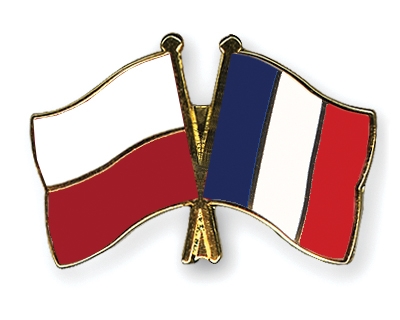Welcome to the 21sth century, era of mobility, constant access to data (also to Internet). A time when a regular person can change the opinion of millions by posting a material online. Our phones became our most desirable tools. We contact our family and friends through them, they become a handy in our business life, through them we access the Internet and manage our financials, health, etc. Some of us, actually, have few phones at the same time. But can we really afford it?
In Europe, France is considered as one of the most developed and influential countries. It’s GDP of 29 900 euro per inhabitant puts it to the top ten countries in Europe. When for example Poland is far behind with its 9 300 euro per inhabitant[1]. The economy influences not only material situation of its residents but also its society. Today I would like to check whether the country wealth has an impact on customer behaviour taking as an example a mobile phone industry in those two countries.
As competitors set prices alike in both regions, I would like to present you further conclusions based on two representative companies from both French and Polish market. To make a comparison more reliable I analysed two very similar plans[2].
Nominal prices in Poland[3] are definitely cheaper than in France (look Table 1), as according to the plan in Poland we would have to pay 37 euros, whereas in France 55. Smart phones are less expensive, too. For example Samsung Galaxy S II in Poland costs less than 25 cents with that plan when on the Seine it is 1 euro. The only model of phone which is more expensive in Poland is iPhone 4 (16 GB) as it costs four times as much as in France, and it is not available right away.
The similar trend is visible in the pre-paid segment. There is a huge difference between prices in Poland and in France. (check Table 2)
But can we really say that prices in Poland are so cheap? To figure out an answer to that question we need to look deeper into how much people earn, and how much those plans are really worth. According to Eurostat an average French earns around 22 000 euro annually (which makes around 1833 euro per month), whereas in Poland an average worker earns 5 400 euro annually[4].
Knowing that let me modify prices, so they can be measured by a share in income. I will focus only on post-paid service as comparing pre-paid ones is impossible due to not enough data. (For making a precise analysis we would need information about amount of money spend by users on average in both regions.)
As you can discover in Table 3, prices are not that tempting any more. Price of the plan in Poland is almost 3 times as high as in France. Prices of the phones are comparable except from iPhone 4 which in Poland is 17 times more valuable (comparing its’ price to the annual salary) espanolviagra.net.
Those differences in plans prices can be caused by customers preferences according to choosing pre-paid or post-paid contracts. The majority of customers in France (71%[5]) are the post-paid customers, whereas in Poland the group contains only 49,2%[6]. But proving that can become a topic of another article.
Table 1: Comparison of two post-paid plans
 Source: Based on author’s information available on company websites: www. sfr.fr & www.24.play.pl
Source: Based on author’s information available on company websites: www. sfr.fr & www.24.play.pl
Table 2: Comparison of two pre-paid plans

Source: Author’s comparison based on company websites: www.sfr.fr and www.24.play.pl
Table 3: Comparison of prices to the annual salary in 2011
[1] Source: GDP from http://epp.eurostat.ec.europa.eu checked at 28.05.2012
[2] 2 year long, with unlimited calls, SMS/MMS and data transfer equals 2GB.
[3] Polish prices were calculated by the exchange rate from 28.05.2012 – 4,34 PLN/EUR.
[4] Source: Annual earnings on http://epp.eurostat.ec.europa.eu/portal/page/portal/statistics/search_database checked on 28.05.2012
[5] Source: http://www.arcep.fr/index.php?id=11303&L=1.#c21635 checked at 28.05.2012
[6] Source: http://www.uke.gov.pl/_gAllery/48/75/48754/Raport_o_stanie_rynku_telekomunikacyjnego_2010_06_30_2011.pdf checked on 28.05.2012

